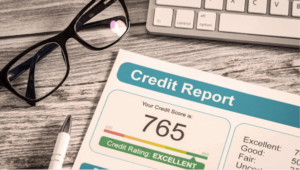In the realm of financial tools, personal loans stand out as versatile resources that can help individuals navigate various financial needs and goals. Whether consolidating debt, covering unexpected expenses or financing a major purchase, understanding personal loans is essential for making informed borrowing decisions. With this in mind, Finger Finance explores what personal loans entail, how they work and tips for borrowing responsibly to achieve your financial objectives.
What Are Personal Loans?
Personal loans are unsecured loans provided by financial institutions, such as banks, credit unions or online lenders, to individuals for personal use. Unlike mortgages or auto loans, which are secured by collateral, personal loans are backed solely by the borrower’s creditworthiness and promise to repay.

How Do Personal Loans Work?
Application
To obtain a personal loan, individuals must submit an application to a lender, providing details such as income, employment status, credit history and the desired loan amount.
Approval Process
Lenders assess the borrower’s creditworthiness based on factors such as credit score, debt-to-income ratio and repayment history. Upon approval, the lender specifies the loan terms, including the interest rate, repayment schedule and any associated fees.
Disbursement
Once the borrower accepts the loan terms, the funds are disbursed, typically deposited directly into the borrower’s bank account. Borrowers then use the funds for various purposes, such as debt consolidation, home improvements or emergency expenses.
Repayment
Borrowers repay the loan in fixed monthly installments over a predetermined period, typically ranging from one to seven years. Payments consist of both principal and interest, with the interest rate determined by factors such as creditworthiness and prevailing market rates.
What Are Different Types Of Personal Loans?
| Unsecured Personal Loans: | The most common type, unsecured personal loans do not require collateral and are solely based on the borrower’s creditworthiness. Interest rates may vary based on factors such as credit score and loan term. |
| Secured Personal Loans: | Secured personal loans are backed by collateral, such as a savings account, certificate of deposit (CD), or other assets. This lowers the lender’s risk, often resulting in lower interest rates, but carries the risk of losing the collateral if the borrower defaults. |
| Debt Consolidation Loans: | Designed to streamline multiple debts into a single loan, debt consolidation loans help borrowers simplify their finances and potentially secure a lower interest rate, reducing overall interest costs. |
| Home Improvement Loans: | These loans specifically finance home renovation or repair projects, providing funds for upgrades, repairs or additions to enhance the value and comfort of a property. |
| Emergency Loans: | Emergency loans offer quick access to funds for unexpected expenses, such as medical bills, car repairs or urgent home repairs. While convenient, borrowers should exercise caution due to potentially higher interest rates and fees. |
What Are The Advantages Of Personal Loans?
Flexibility: Personal loans offer flexibility in usage, allowing borrowers to address various financial needs, from consolidating debt to funding major purchases or covering unexpected expenses.
No Collateral Required: Unlike secured loans, personal loans do not require collateral, making them accessible to individuals without significant assets to pledge.
Fixed Repayment Schedule: Personal loans typically come with fixed repayment schedules, enabling borrowers to budget and plan for consistent monthly payments over the loan term.
Potentially Lower Interest Rates: For borrowers with strong credit profiles, personal loans may offer competitive interest rates compared to credit cards or other forms of financing, resulting in potential interest savings over time.
Streamlined Application Process: Many lenders offer online applications and quick approval processes for personal loans, making it convenient for borrowers to access funds without extensive paperwork or delays.
What Should I Consider Before Borrowing A Personal Loan?
Assess Your Financial Situation
Before applying for a personal loan, evaluate your financial situation, including income, expenses, existing debt and credit score. Determine how much you can comfortably afford to borrow and repay.
Compare Lenders
Research and compare offers from multiple lenders to find the best terms and interest rates that suit your needs. Consider factors such as APR, loan term, fees and repayment flexibility.
Read the Fine Print
Thoroughly review the loan agreement, including terms and conditions, interest rates, repayment schedule, and any associated fees or penalties. Understand the total cost of borrowing and your obligations as a borrower.
Avoid Overborrowing
While personal loans offer access to funds, borrow only what you need and can afford to repay. Avoid the temptation to borrow more than necessary, as it can lead to financial strain and debt troubles.
Maintain A Good Credit Rating
Maintain good credit habits, such as making timely payments, minimizing debt and monitoring your credit report regularly. A strong credit profile can help you qualify for lower interest rates and better loan terms.

The Bottom Line
Personal loans serve as valuable financial tools that offer flexibility, convenience and access to funds for various needs and goals. By understanding how personal loans work, exploring different types of loans and borrowing responsibly, individuals can leverage these resources to achieve their financial objectives while managing their debt effectively. As with any financial decision, careful consideration, research and prudent borrowing practices are essential to make informed choices and maintain financial wellbeing.


